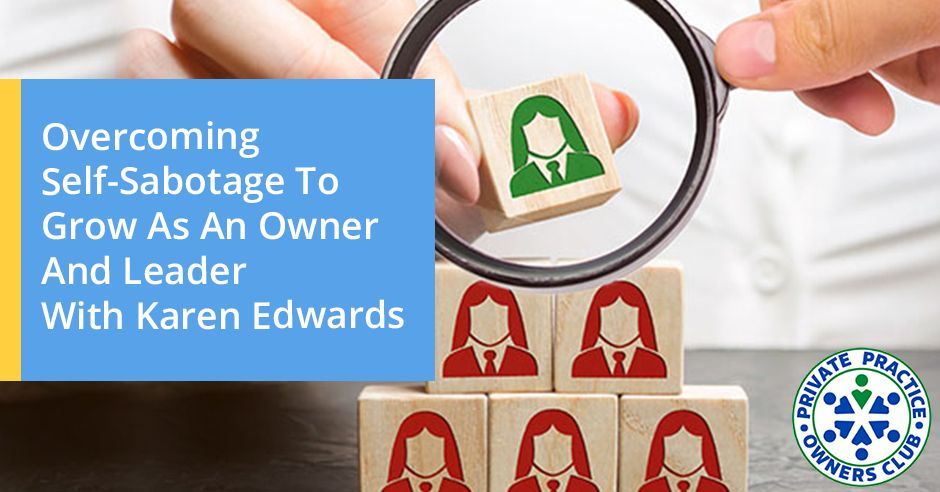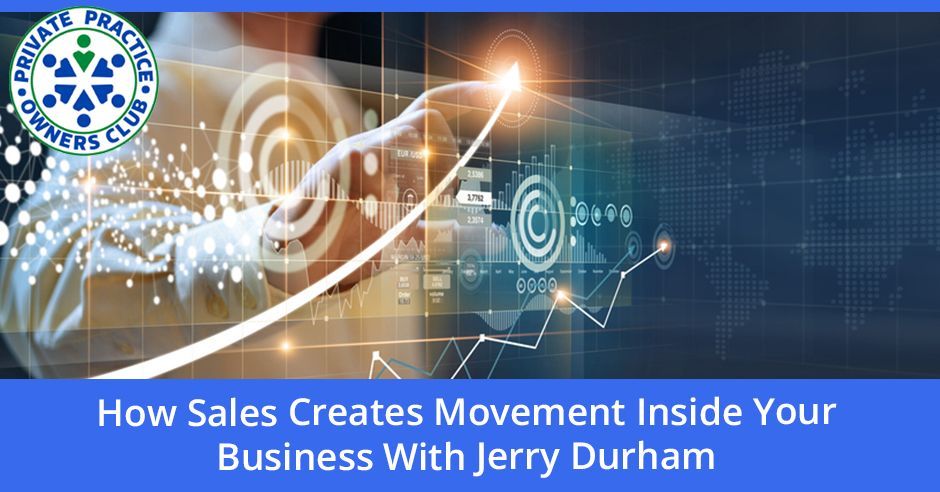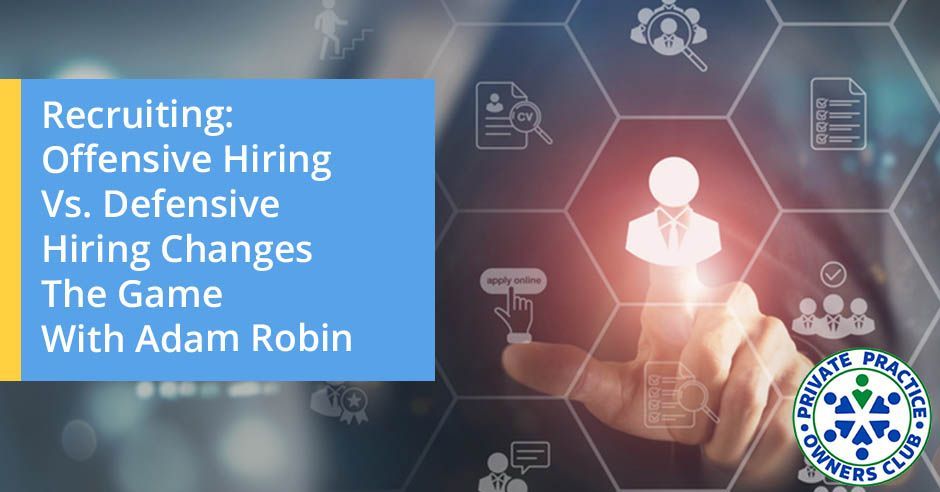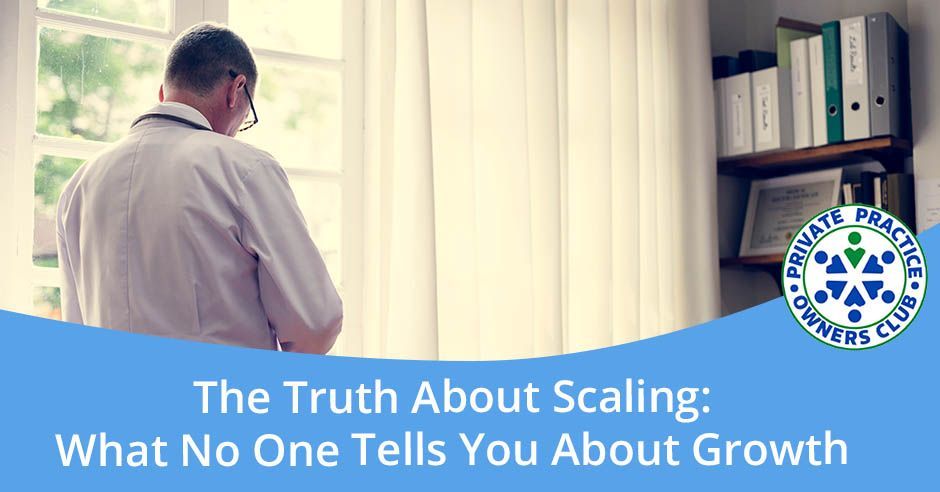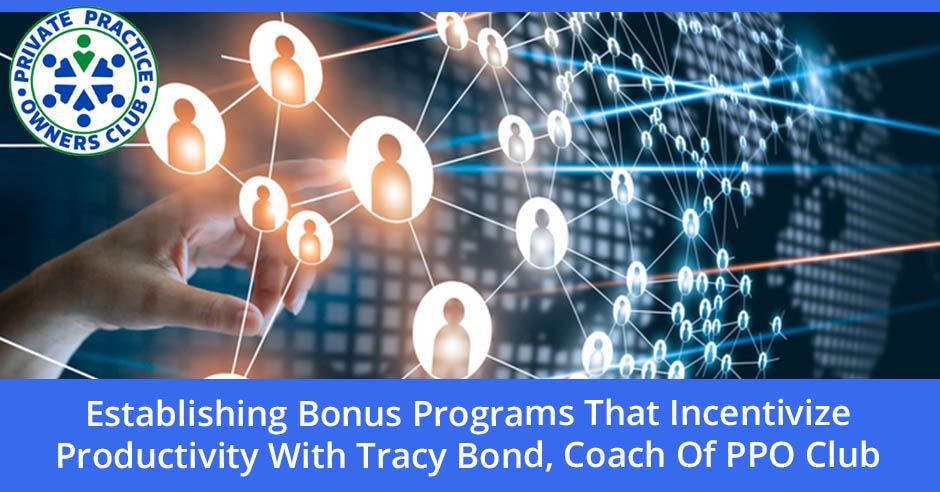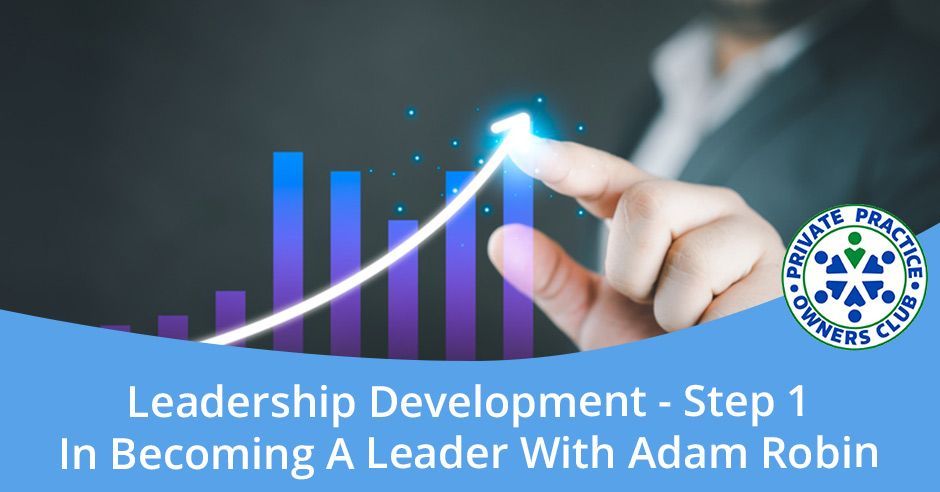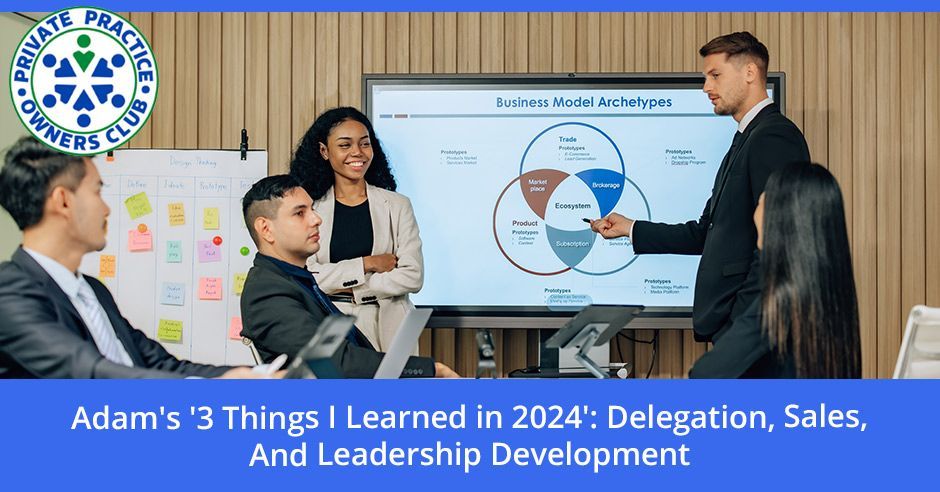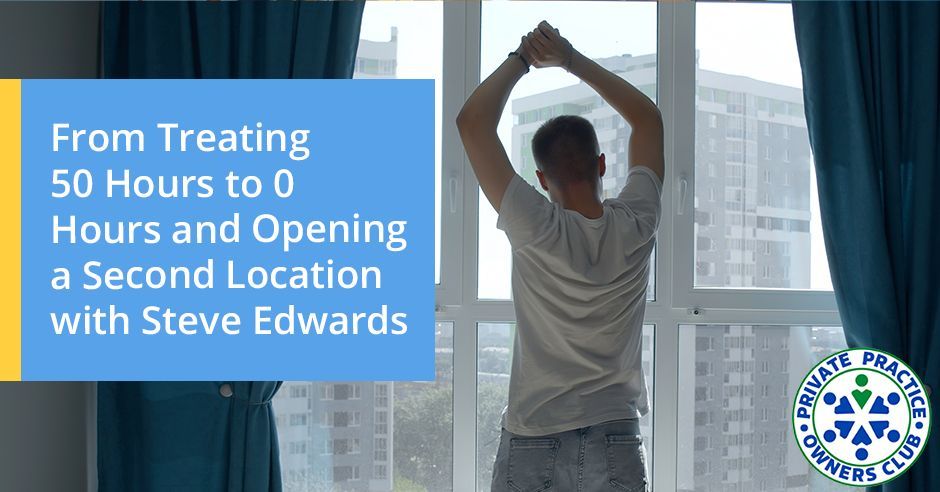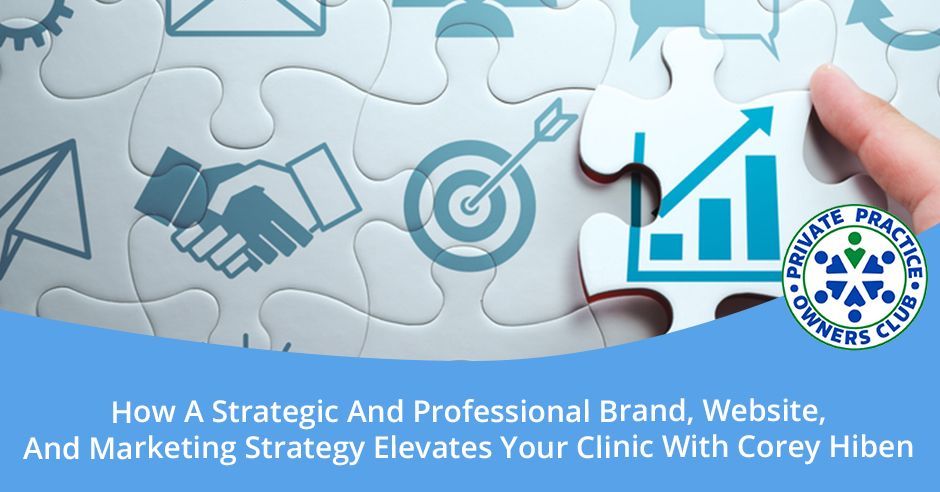Are hidden mental blocks holding back your practice? Discover the power of recognizing and overcoming self-sabotage as a practice owner! In this Private Practice Owners Club Podcast episode, Nathan Shields welcomes self-sabotage coach Karen Edwards, who shares actionable strategies to help you become a stronger and more intentional leader who can create a thriving practice.
This episode highlights:
- Understanding self-sabotage
- Learn about the saboteurs that undermine your decision-making and how to identify your dominant self-sabotage patterns
- Sage vs Saboteur Brain
- Discover the difference between the survival brain and the sage brain
- Embracing discomfort for growth
- Importance of recognizing discomfort as a growth opportunity instead of a barrier
Don't miss this episode of Private Practice Owners Club Podcast – whether you're just starting or thinking about your next step in scaling your practice, this episode is packed with powerful insights and real-life strategies. Tune in and become a confident, proactive leader who thrives even in challenging times!
Visit our Linktree for our Coaching Services, Free KPI Dashboard, Facebook Group, and Annual Strategic Planning Services: https://go.ppoclub.com/linktree-podcasts
Love the show? Subscribe, rate, review, and share! https://ppoclub.com
---
Listen to the podcast here
Overcoming Self-Sabotage To Grow As An Owner And Leader With Karen Edwards
Introduction
Welcome to the show. I'm excited to bring on a guest who is the wife of a previous guest who is also a physical therapy clinic owner,
Karen Edwards, the lovely spouse of Steve Edwards who's been on the show a couple of times already. You might've checked those episodes out in the past. Karen Edwards was a guest speaker at our first-ever conference that we had in September 2024 for the Private Practice Owners Club. She spoke about and she is a coach on self-sabotage. She's also a podcaster in that realm.
‐‐‐
Karen, thank you for joining. It's awesome to have you.
It is my pleasure. Thank you for having me.
Your presentation about self-sabotage got a ton of positive feedback. People devoured it and loved it. We should have had you on for another hour or maybe two to go through this stuff because people want to learn what's making them tick and what's sabotaging them. Especially as owners, they’re like, “Why am I staying in this rut? Why can't I get forward?” It was tremendous and great. It was really nice to have someone outside of the industry speaking to us as well. That was cool.
Your work regarding self-sabotage isn't just for clinic owners. This is for individuals as well. You're bringing this perspective to our group because you have a husband who's living through his experiences and you've helped him with self-sabotage issues, all based on the book
Positive Intelligence
by Shirzad Chamine. I highly recommend you go and read it. It's a great thing. Take the test. Find out what your saboteur is. There are seven saboteurs, right?
There are mine saboteurs.
It’s great to think about, “What is hindering me in making decisions and moving forward? What's stopping me? Where do my fears lie? What are my weaknesses?” and so forth. You're going to explain a lot of that. I wanted to ask what got you into this in the first place.
Before COVID, I had a lot of anxiety personally. I have a son who struggles with anxiety. I started listening to a friend's podcast. She was a life coach. Some of the resources and tools that she gave really helped me and made me realize it's not necessarily my circumstances and these things that I'm anxious about. It's what I'm making them mean. I loved it. It helped me so much and it helped me help my son.
I wanted more so I decided to go to school and become certified as a life coach. Honestly, I went to school not thinking I would be a coach. I wanted all of it for me and my family and to understand my brain. I'm fascinated with our brains. It was purely, “I want it for information and to help me and my family,” and then I can't shut up about it.
You can't shut up about it because it's been so impactful in your life, I assume.
My daughter's in college. I'm using her as my Guinea pig during school when I need all these hours for certification. She was like, “We should do a podcast.” That's where the whole podcast came up. She’s the host. She brings me topics and we talk about it. I give her some coaching perspectives on these different topics. It took off into a coaching business. It's what I do and I love it.
It started in general life coaching, like what my thoughts are and creating, but then it veered over time into I'm a self-sabotage coach. My goal is to help people understand their brains. Unless you understand how your brain works, you'll naturally sabotage yourself. That’s because we have a negative brain. We have a primitive survival brain that doesn't have the same goals as our true selves. If you don't know that, you're likely sabotaging what you really want.
Unless you understand how your brain works, you will naturally self-sabotage because we have a primitive survival brain.
This was a couple of years ago before reading the book. When I initially thought of self-sabotage, I thought that some people are self-saboteurs. That was a distinct group of people.
They’re toxic people.
I didn't belong in that group. I wasn't self-sabotaging myself. I assumed those people have horrible toxic lives, which I don't have a horrible toxic life, and they're sabotaging themselves. What the book opens up to me and the information says is we all have a saboteur somewhere in our mind. If you had said this is where the negative self-talk and negative self-image come from, then I can relate and say, “I got that.” You're saying self-sabotage and I used other words to describe it, but we all have that, right?
Yeah. I had a very similar view of it until I learned what I learned also. Many things I thought were my personality. I’m then like, “This is not my personality to worry all the time or to have anxiety. That's my brain trying to protect me, but it's sabotaging me.”
It's holding you back. How do you describe the sabotage? What does that look like when there is self-sabotage? Are there too many forms to describe or can you be succinct?
Understanding Self-Sabotage And Saboteurs
Yeah. Shirzad wrote the book Positive Intelligence in an effort to take the complexities of neuroscience and make it understandable for us regular humans, which I appreciate. It was so helpful to me personally. That's why I use the program with my clients. It makes it so that we understand our brains better without having to be a scientist. We have two brains. We have our higher brain, which involves our true self, and then we have this protective brain of our bodies that's designed to always keep us fearful. The tool is fear. We have another brain and the tools are love, curiosity, gratitude, and all the great things.
 One is more the monkey brain survival, like, “Get fed, survive, and don't die at all costs.” The other one is achieving, dreaming, and living a life that's beyond what I'm expecting.
One is more the monkey brain survival, like, “Get fed, survive, and don't die at all costs.” The other one is achieving, dreaming, and living a life that's beyond what I'm expecting.
It’s creating. He made a simple program to help you stay on top of that brain. If you don't have the awareness that we have this survival primitive brain that's always trying to create fear and keep you safe, we refer to that as keeping you in the cave. Stop trying to live life and take risks. Go back to the cave. That's what it's designed to do.
Play it safe.
Exactly. I also like to explain that the brain is default and automatic. If you don't choose to use your higher brain, you will automatically default to that brain. People don't even know that their whole lives are being run and decisions are being made by this saboteur brain.
If you do not choose to use your higher brain, you will automatically default to your saboteur brain.
By the lesser of the two. It's almost like you want to say that you're intentional about your thoughts, and what you're doing, but if you're not being intentional about your thoughts and what you're doing and choosing one thing over another or one thought over another, you are defaulting to the lesser brain.
That’s perfectly said. I've realized in my life, “That is so true.” We think we're using our agency, but unless you're intentionally using your agency, you're not.
You have to eat to live.
Don't worry. Your survival brain will make sure you eat. It’s uncomfortable to be hungry.
Before we go on too long, people might be screaming, “What is the name of your podcast?”
The name of our podcast is called idk, let’s ask my mom.
Do you mind laying out the saboteurs that can affect us? Also, to be clear, each of us has some measure of each saboteur in our brain but some speak much more loudly than others.
Some show up in different areas of your life. Some might show up more with your family. Another saboteur might show up more at work, depending on your fears. I also want to point out that we all have saboteurs because we all have a survival primitive brain. One thing that I have to do when I'm working with people, and I did with the conference, is make sure everyone understands all of you have one.
There's no embarrassment here. This is not about your personality. This is about how your brain is trying to keep you safe. That's why I had everybody raise their hands. I wanted everyone to see they’re not alone. We're all human. We all have them. Your saboteurs over time developed based on, honestly, your gifts. It's taking something that you're really good at. In this program, we call your higher brain your sage. It's another word for your higher brain.
The saboteurs and the sage.
Saboteurs and the sage are two opposites. We all were born with different talents, gifts, and sensitivities. Our survival brain recognized, “You are a very caring person. You're so empathetic. Let's abuse that and add fear to it. Now, we have a saboteur.” Your saboteur, although it is negatively affecting you and causing you to sabotage yourself, is also showing you what your gifts are. My goal as a coach is to help people get back to the gift and create from there, not abuse the gift. That takes a lot of work.
To answer your question, the different areas that we sabotage are avoider, controller, hyper-achiever, hyper-rational, hypervigilant, pleaser, stickler, restless, and victim. At the conference, we all took the test. Your results come back where they're all listed but it tells you which is your top and which is your second. I've been doing this for a while. I've coached a lot of people and I've never had someone say, “That's not true.” The people are always like, “Yeah.”
I remember the larger of the groups that separated themselves was the hyper achiever if I remember correctly. Was restless a big one?
Restless was a big one. Avoider was a big one, which is interesting because of what we were there for as business owners.
These are all business owners.
That was very telling.
You expect the hyper-achiever, for sure. The restless was a little bit interesting. When it was described to me, these are people with a ton of ideas, and their minds are going nonstop. It’s the entrepreneurial mindset. Avoider was interesting in that it showed up so much amongst a group of small business owners.
The gift of an avoider is a very easygoing, even-keeled, flexible person. It is someone who likes peace.
It sounds like a physical therapist.
They’re easygoing. When you go to physical therapy, why is the physical therapist always so chill? They’re calm. I've been going for my shoulder and I always leave being like, “I love these people. They're so positive.” That's the underlying strength of an avoider. It's that your primitive brain added fear to that gift. You’re like, “I won't be able to survive if I don't feel that peace. When a problem arises, I have to pretend it's not here.” There’s no growth. You’re like, “I want to stay in the cave.”
That is hard to do if you're going to have a small business. If you're going to own a small business, it's really hard to stay in the cave and be comfortable because that's not what small business is about.
Also, it is like, “Why I choose to be a business owner, someone who tends to avoid, is because the underlying gift is I want to give people peace. I want people to have an easygoing, comfortable life and get this injury figured out.” You want to give that to other people. That's your strength. Your brain sabotages that by adding fear to it. It is then like, “I avoid hard conversations and hard decisions.” That does not go with being a business owner. If you want to be a business owner, you're going to be uncomfortable, and that's okay. You have to learn to develop your tolerance of discomfort.
It starts with recognizing it. How would someone recognize that the saboteur is coming forward?
The first step is to take that assessment and get some awareness around it.
Where would people find the assessment?
You could Google Saboteur Assessment or Positive Intelligence Assessment. It will pop right up. My husband, for example, didn't know that his brain was doing this. He couldn't figure out, “Why can't I get to the next step or make these hard decisions?”
There's a feeling of being stuck. Is that a lot of it?
Yeah.
Does anxiety and stress show up in these situations?
Yeah, because if you're avoiding, you're not addressing. That problem grows. As big as that gets, you aren't able to put your finger on the problem because it's gotten so big. We started blaming the circumstance, the insurance, and the employees, but really, it was that we were avoiding.
Is that avoidance situation specific to the avoider? Is there a general sense across the saboteurs that when any of those saboteurs show up, they're going to be in a state of fear, anger, reaching out, or harming other people or themselves?
How Saboteurs Impact Personal And Professional Life
Fear and anxiety is probably an underlying theme through all the saboteurs but avoiding is specific to the avoider. Not to share too much, but my top saboteur is hypervigilant. That would make sense. I shared that how I got into life coaching was anxiety. That made a lot of sense when I did this and realized, “The top way that my brain's trying to keep me safe is convincing me that I should worry.” Our saboteur brain is making us a lot of promises. It’s like, “If you avoid, you'll feel peace. If I'm hypervigilant, then I'll be able to feel peace because I'll be able to stop bad things from happening in the future.”
It’s like, “I'm going to keep people from making bad decisions. I control every circumstance around me.”
It’s like, “I can preempt anything bad if I worry,” which is not true when you realize the saboteur is saying, “Worry because then you can prevent things and feel peace.” As I've learned, when did I feel peace? I'm 51. It never delivered that to me and I never prevented anything. It gives me little breadcrumbs here and there to make me think that it's serving me but it’s, “You are the problem.” The worry is the problem, so I never get what it's promising me. It's the same with the avoider. It’s like, “I'm telling you. If you avoid this, you can get back to peace.”
It shows up in your relationships. We're talking about business owners and how it shows up in your business, but this is also happening in your relationships. My husband said it was really helpful for us to do this and realized I'm a hypervigilant. I want to talk about everything. I'm not an avoider. I want to address everything at all times. A lot of wives are like that, to be honest. It was helpful for me to see that he thinks that he's helping me when he wants to avoid this conversation.
Is that his saboteur?
It's one of his. I don't think it's his top, but it's up there in the top three. It's been interesting to see his saboteur promising him, “If you ignore this conversation or this uncomfortable topic, it won't grow for her and it will go away. She'll feel peace.”
It’s like, “It might eventually go away. It might resolve itself and she'll never have to know about it.”
It’s like, “I did her the biggest favor ever by not talking to her about it. She didn't have to feel all that.” That's not how it works because then, my anxiety grew because I'm not heard. It never went away. I got more fear. It was really interesting to see how, and this is true for business too, our saboteurs, sometimes, you realize, “That was my saboteur in your saboteur in that whole interaction. It wasn't my true self or your true self. It was both of our fears colliding.”
There's a fine line there, or maybe it's not so fine. I know mine is hyper-achiever. I was always judging myself. I was like, “Am I producing? Am I achieving? Am I gaining more?” In and of itself, that's not a bad thing, but what I've experienced in the last few years after selling my practice is I don't have something to cling to to say, “I produced that,” or, “I achieved blank.” Thus, my self-worth takes a hit. If I'm not producing and if I'm not doing, then what worth am I?
That is so good to see. It’s not fun but good to see.
It's not easy. Those thoughts haven't gone away. I'm still working on it. I know that's there, and I know that my self-worth is not tied to what I produce or achieve.
You're going to have to remind yourself of that. You're going to have to remind yourself a lot, You have to retrain your brain.
All the time.
I love what you're saying. It's not bad in itself. We want to achieve. Achieve is amazing. Achieving is not a problem. A hyper-achiever is a driven, goal-oriented, self-directed person. That is amazing and beautiful. That is a gift that you were given. Your survival brain took it and added fear to it. We have to take the hyper part off. The hyper part is, “My worth is tied to this,” instead of, “I love to be a physical therapy owner. I love what I do.” It's separating, “My worth never changes. I get to experience new things.” That's so good. When we did this conference with physical therapy owners, there were a lot of hyperachievers. Even if it wasn't their top, it was 1 of the top 3.
I don't want to spend too much time in the saboteur phase because I also want to talk about the sage. Let’s say they take the test and see some of these saboteurs in their lives and how it's sabotaging them in relationships or in their professional business, especially with them as leaders of a team. How do you then bring forth the sage to overcome some of these saboteurs?
With neuroscience, it is amazing that they've been able to see how we can access that part of our brain more. It's a part of our brain that we have access to. I explained it at the conference as you have two garages in your home. You’re 1 of those people that have 2 garages. One is easy to go to because it's straight out the back door. There's the garage. There's one that you have to go through the laundry room and then there's a side door. They both have different tools. In one garage, we have hammers and shovels. In the other garage, we have my husband's woodworking, like sandpaper and woodworking tools that we don't use all the time. We get so used to going for the hammer.
Using Sage Tools To Overcome Challenges
I tried to relate that to physical therapy owners. We keep going to the easy answer. Maybe you didn't need a hammer. Maybe you needed sandpaper or a different tool. We forget that we have agency, but it might take a little more work to go down the laundry room to get out to the other garage. Since we have bodies that need to be protected and there are dangers in the world, the survival part of our brain is important. It’s like, “Put on your seatbelt. Remember to stop at the stop sign.” It’s important but it's not the kind of brain we need for relationships. It's not always the answer.
Those aren't always the answers for higher-level thinking.
The hammer is not always the answer. The garage that I'm talking about with the sandpaper that is a little harder to get to is your sage. There are ways to access that. Some of those ways are simply questioning the thought, and asking the opposite question. Your survival brain is designed to create fear and hyperfocus on negative thoughts. Our brains are designed to prove our thoughts true. It does matter what you're thinking. Some people are like, “It doesn't matter. It's a thought.” You're believing it. The more you think about it, the deeper that thought gets in your brain and it's harder to see anything else. That's confirmation bias when we already think it's true to us because our brain made it concrete.
The more you think about your negative thoughts, the more they get in your brain.
In the physical space, not to speak for OT, speech, and whatever, there's a common theme that there are declining reimbursements. That's statistically true. You could go forward and say insurances aren't going to pay you anymore, so why bother? I felt that way myself. There are plenty of people that aren't renegotiating contracts and getting higher reimbursement rates. They're finding ways to collect more revenue. They're adding this or dropping in insurance to avoid that and get a higher profit margin anyway. That's an example of how we tell ourselves, “The declining reimbursement rate is killing us.” If we stop there and accept the thought without questioning it, and that's what we're talking about here, the sage would question that and say, “Is that true?” or, “What can we do to increase?”
It says, “What else?” When you’re thinking, “We're screwed. Insurances don't reimburse. We can't make money in physical therapy,” then your brain is, “Is that the thought? I'm going to prove it true to you.” Your brain will block out any evidence that it isn't true. Our brains are designed to save energy and go, “Let's go with that thought.” It will become a fact to you. The more you think a thought, it's going to eventually become a belief, and our beliefs create a reality. To someone who is thinking, “I can't make money in physical therapy,” it's a fact.
It's going to happen.
I love what you said. One way to get to this age is to question it. For me, I ask my brain the exact opposite. I’m like, “How have some people made money in physical therapy?” That throws your survival brain off. It’s like, “What?”
It’ll be like, “They must be doing something right to be surviving and flourishing like they are. Maybe I need to learn some new skills.”
You said some physical therapy owners have found new revenue or new ways. My husband has found other ways to bring in more revenue. That is being able to think outside of the box to come up with new ideas. That is a sage power or a sage tool in that garage. That's called innovate. It's being able to be innovative and throw out tons of ideas and recognizing that your brain's going to try to judge those harshly and it's okay. You can make it a game. It’s like, “How many ideas can I come up with? Maybe one will move me to something.” It’s being aware that your saboteur brain is going to judge and always show the negative first, but because it's showing you the negative first doesn't mean you don't have other options.
You don't have to accept it.
My goal is for people to be like, “There's the negative first thought that always comes, but I have so many options in this other garage. I have curiosity. I have my values. I can remember who I want to be. I can come up with ways to come up with new ideas.” There are so many other options besides fear and judgment.
Steve shared a story in one of his episodes where he was worried about the clinic dissolving or going bankrupt. You took a different tact. It wasn't asking the opposite. It was, “What would happen then?”
Worst-case scenario.
It’s like, “If that is true, what's the absolute worst-case scenario?” We think about the worst-case scenario but we don't look past it. We don't open that door and look at what's behind the door.
We don’t look at it in its face.
What you see when you open the door, is that truly scary? Is that earth-shaking? Is it horrible? Is it exactly what you're imagining? Are your emotions telling you the same thing when you see its face? That was a different tact. Is that another way to maybe access the sage or tell your saboteur, “You're a liar.”
This is very common for some people who have a hypervigilant saboteur like me. We’re like, “Whatever's behind the door is super scary.” When I go and open it, it might still be scary. It still might be a circumstance that I don't enjoy, but then I say, “How will I be able to handle it? What will I do?” That might not be the most fun thing but that's part of life. We all have circumstances that are not perfect. People get sick. People lose jobs. We have failures. When you can go, “What will I do? What will be my game plan?” You're like, “It's not as scary as I thought.”
This is exactly what happened with the story that my husband shared. I remember this exact thing because we were in the kitchen. He was at that point where he was like, “I'm done avoiding. I'm going to look at this. Every time I want to grow and I get to that place where I don't know, I go back to treating. I'm going to go back to what I know.”
His hyper-achiever played into that because it was like, “There's this tangible thing that I can see that I'm doing that's adding value, which is treating a patient. When I can see the tangible evidence that this person feels better, it makes my hyper-achiever feel like my worth is still good.” For him, it was avoider and hyper achiever. He’s like, “I want to grow my business but then I see that there are these obstacles. I don't quite know how to navigate those obstacles,” so he would go back to comfort.
Our survival brain is always trying to put us back into the comfortable place of treating patients. That makes you feel good in that moment because you see that patient getting better but that's not growing your business. We were in the kitchen and talking about how we got to the place where these insurances do not reimburse to the point that this is not okay. We have to take a stand for physical therapy in general. It’s not just that it's not paying us money. It's offensive.
I have to give people context. This is so people understand. I know your story because I was coaching him through it. The reimbursement rate was $46 a visit. It was horrific. This was a large part of his patient population. It wasn't a small part. It was a decent size.
He had a lot of patients. It looks very successful when you're there in the office with lots of patients, but the reimbursement was offensive.
He had some big fears about dropping the insurance.
He was like, “If I take this insurance away, are we going to get any clients?” You can see what his brain was doing. We're having this conversation and he is like, “What will we do?” I'm like, “We both can work. If the business isn't going anywhere as it is happening with this insurance rate, we know that we need to make this move. We need to take this risk of dropping this insurance.”
I remember we were standing there and I was like, “What's the worst-case scenario?” He said, “The business doesn't make it when we drop this insurance.” I'm like, “What will we do?” We sat there and discussed what we would do. I was like, “We don't have to live in this home. We could move to a smaller home. Our kids are all grown. We both can work. You still have a physical therapy license. It might not be our perfect scenario but we will survive. We'll be able to figure this out.” When we saw that we were both on the same team and we were both willing to handle whatever, we were like, “It's not so scary anymore. We're doing this.”
It’s like, “It might be a blow to my ego that I started a business and it failed. At least I made the decisions that I thought were right for it. That doesn't have to define me. Am I okay with that? Would that be okay if I did have to go to work from 9:00 to 5:00 again as a staff PT?” That's the question that comes down to.
One of the more popular TED Talks by Tim Ferriss is called Fear Setting. It was exactly this. He was a business owner. He wanted to go to Europe for a few months and wanted nothing to do with his business. He wrote down all of his fears that would keep him from doing that. He was like, “What's going to happen to the business while I'm gone?” The goals were like, “I need to address that fear. Worst-case scenario and it comes to pass, how are we going to address it if that worst fear comes to pass?” He put the plans out there in place and lo and behold, most of the fears never came to fruition.
That is how it works. It's hard to explain. We were okay with the worst-case scenario happening and we had a game plan, so we eliminated the fear. You'd be so surprised. Once you eliminate the fear, you'll make it happen. Once you get the saboteurs and the fear under control, your sage has so many tools that you will make it happen. This goes for anything, not just in business. Once you take care of the fear, you'll be surprised how fast you will accomplish what you want. Everything is more productive and you're using your skills to a different level. Once you take the fear and the way that it exhausts you and stresses you out, you're able to perform so much better.
Once you eliminate the fear, you will be surprised how fast you can accomplish what you want.
It brings tools of innovation. It brings tools of creativity to address the issue that you're talking about. Once he got past that fear of dropping the insurance and finally did it, and I was his coach at the time, his mindset and his vocabulary were different. He had made the decision and sent in the letter, “I'm dropping this insurance.” I knew this was a very fearful jump for him. He was like, “I'm doing it. I'm going on faith. If it doesn't work out, that's fine. I'll keep moving forward.”
He had a plan in place behind that. It wasn't stepping off the ledge. He had a plan of, “I'm going to do this kind of marketing. These are my goals with that marketing strategy. These are the number of people I need to hit. These are the financial projections that I have behind it.” He had a plan and moved forward. The fear was still there.
It was managed. That plan that you're talking about came after we were able to eliminate the fear and see that we would be okay. When that fear got taken care of, that's when that plan was like, “I'll do this and then I'll do this.” His brain started coming up with all these ideas because he didn't have that fear holding him back anymore.
From your perspective as the spouse, do you see him as a different leader and business owner now than he was a few years ago? What's the difference?
Number one, he doesn't avoid. He dives right in. He had something happen with some employees. It was challenging. It made him a little uncomfortable. He doesn't like being rough or the bad guy. He’s like, “I want to be likable.”
That's a physical therapist. It's a therapist thing. We want to be liked by everybody. We play the nice guy, so it's hard to confront and it's so hard to address. I see what you're talking about.
He found out that handling and having a hard conversation so people don't continue to be dragged down by this issue is being a nice guy. He looks at confronting things as being the nice guy. He has changed the definition of what a nice guy does. A nice guy doesn't ignore someone and invalidate their feelings. He would come home and tell me, “We all had a meeting.” He’s way more assertive, taking care of things as they pop up. He’s very confident and decisive. He always knows what he's doing next, creating his systems.
Meditation And Mindfulness
For me, I can tell that he has more access to his sage. He knows how to get himself there. It doesn't mean that his saboteurs don't pop up. They do. We're always getting triggered back to old habits, but he knows how to get himself out. You asked, “How do we get up to our sage more? How does he do that” Questioning our thoughts was the first one. Meditation is a big one. I try to explain to people it's not necessarily meditation spiritually and sitting there for ten minutes with your hands out. What I like about this Positive Intelligence program is it takes meditation and uses it more like brain exercises.
It redirects the electrical synapses that are firing to a different part of the brain, right?
Yeah. The part of your brain where your sage is is also the part of the brain that you have to use to focus on a sensation. If you're really tasting your drink or whatever, you have to use that part of your brain. Neuroscience has figured this out. It’s not like it’s this magic thing when you meditate. Meditation requires that part of your brain. You can meditate a little bit every day. You're into that brain where those tools are in that garage that are going to be easier to apply. It's generally the right side of your brain, your sage brain. You're also shutting down your saboteurs. They can't talk to you.
Every few hours, I'll do a two-minute meditation. What I've noticed over doing this for years is my saboteurs can't get momentum on me. It comes. Everybody's survival brain does. You can't shut it down. It can't not have one, but I keep power over it. I keep control of my brain by doing these exercises. They’ll come and give me thoughts. I get negative thoughts like everyone else but they don't get hard momentum on me because I'm interrupting and shutting them down for two minutes every few hours. I explained in that conference that if you were doing an MRI and we were looking at your brain on an MRI, and you started meditating and you were shutting down, it would show blood flow to your right brain.
That is another way to get to your sage. Meditate or focus on a sensation. A lot of people focus on their breath. For two minutes, focus on your breath going in and out. It can be something that you're feeling with texture. It can be touching your mouse pad for two minutes and not having thoughts about it but experiencing it. Sometimes, I label. I'll go, “Breathe in, breathe out,” so that my mind won't start thinking. We did that exercise where you try to feel your fingerprint. You have to use your right brain to be able to feel the ridges on your fingers. It's cool that there are these ways that we can access that part of our brain fast and simply.
It can make such a difference. Sometimes, you fall into that sage maybe when you're exhausted from the fear or something like that. Sometimes, if you're thinking about things, all of a sudden, your mind opens up and there are possibilities. Whereas before, you think you're stuck in this situation and there's no way out. You’re like, “Now that I see possibilities, I have many more options to choose from.”
It's so crazy. This is random. My son struggles with anxiety. He has very black-and-white thinking. He has ADHD. One time, we were going to Florida. Steve had a business thing. We went to Universal. He was having a bad day. His brain loves to show him the negatives. He has a very strong survival brain. It’s his ADHD. Sometimes, that is the case. Your survival brain is extra convincing.
He was upset. We were on the plane. I was like, “How are you so grumpy? We are on a plane to go to Universal. What could go wrong?” He was like, “I'm so mad about this at school.” He's not one that wants to be coached by his mommy. If I ever want to coach my kids, it has to be a roundabout way where they have no idea.
He was sitting there on the plane and was leaning forward. I started scratching his back. I was like, “Whatever I do with my finger, make sure you follow where it goes.” I don't know why he engaged in this. I was making really fast movements. He didn't know this, but I was helping him do meditation. Since I was making such fast movements with my finger, he had to keep up from feeling that sensation on his back. I did that for five minutes and then stopped. He was so calm and he said, “What rides are we going to do?”
It was so cool because he didn't know and I knew. It was so cool to see it's real and it happens. He has no idea. He knows that he felt better and was able to get out of that brain, and be able to start seeing, “What rides are we going to do? Are we going to the Harry Potter place? Are we going to get butterbeer?” All the conversation changed.
All the possibilities came forth. That’s so cool. If people wanted to reach out to you if they had questions, are you on socials? Do you reach out and talk to people occasionally?
Karen’s Coaching Programs
Yeah. I do have an Instagram. It's @KarenEdwards.Coaching. If you want to contact me, you can DM me. I have a website, KarenEdwardsCoaching.com. I do one-on-one coaching and I do group coaching. I love to take people through the whole program. In fact, for most of my one-on-one clients, we first do this Positive Intelligence program. If we're going to label it, it's a mindfulness program. It's teaching how to build muscle in your brain so that you have more access to your higher brain. It's like a self-command muscle. Over time, in using your right brain, your sage, it becomes more natural to use that part of your brain. It doesn't take as much work to get to that garage eventually.
For most of my clients, we do the program for the first six weeks with also coaching. This is why Steve was open and coachable. It was because he knew his saboteurs by the time that he went to you. You had to do less convincing of, “Your habits are sabotaging you.” If you're able to understand your brain and the habits that you have, coaching is way more effective.
You also said you do it with groups. Do you do it with an owner and their leadership team? You did it with Steve and his leadership team.
I did it with his PTs and the whole staff.
What was their response?
They loved it. I've been going in for my shoulder. The therapist that has been treating me for a couple of years, she would bring up when we did that and she'll want to talk about it with me. It's great. It helps you understand your employees. There's a big benefit to doing it as a staff. You'd have to make sure they want to because you do get a little vulnerable. Whenever I do a group, we make sure that this is confidential. Everything that's said in the group is confidential. We don't share outside of the group what anyone has shared.
It helped my husband understand his employees better. He’s like, “She struggles with pleasing. That is so good to know,” or, “This person is restless. When they're doing something that's not so enjoyable, their brain's going to try to talk him into doing something that feels better.” It helps in general. It helps you understand others better. It helps you empathize. We all have saboteurs. It’s like, “This person isn't a lazy person or a toxic person.” Once you understand they have a saboteur that's trying to help them feel safe, you start being a lot more understanding and tolerant. You also find ways to better communicate with that person. I've had families do it together.
How cool.
This can also be for people who want to understand their family better.
Final Thoughts
That’s so cool. Thank you so much for taking some time to explain it to us and help us understand ourselves a little bit better as well as our brains and how they work. I witnessed this transformation in your husband. It was great for him, especially as a leader and a business owner. I'm sure it has helped relationships along the way as well. Is there anything else you want to say before we wrap up?
One thing I want to point out is after coaching and all the work you've done with my husband and him being able to be more confident, be more decisive, and be able to have hard conversations, the other thing that I'm seeing is he's able to enjoy his practice so much more. Even though it does have challenges and things pop up every day and there's a problem, he's enjoying it. That's the whole point. That's why we all wanted to do it. We wanted to be able to enjoy what we do for a living. Being in his sage more helps him enjoy it on a daily basis with the challenges included. It is so much more rewarding.
It's more than overcoming. He can thrive.
Some of the circumstances have not changed, but his thinking has. That's what helps us enjoy things. Joy does not come from our circumstances. It comes from what we make them mean and the way we think. We don't need everything to be perfect all the time to be able to enjoy what we do.
That’s a great insight. Thank you so much for sharing. I really appreciate it.
Thank you.



